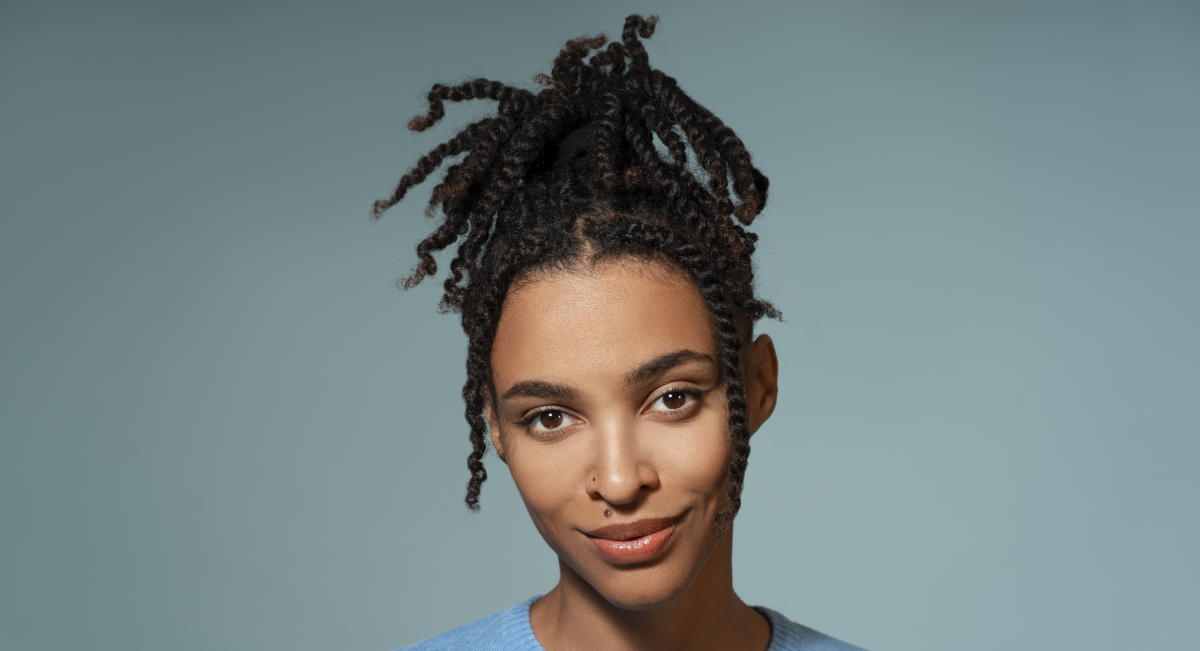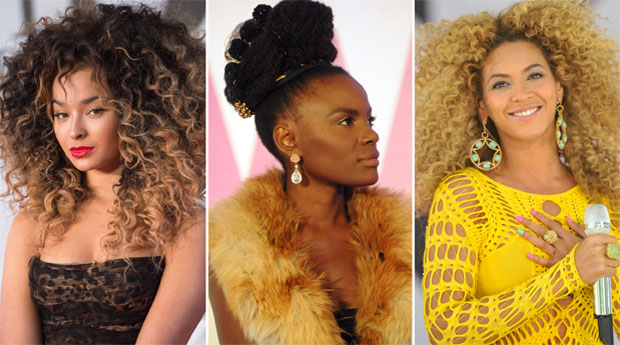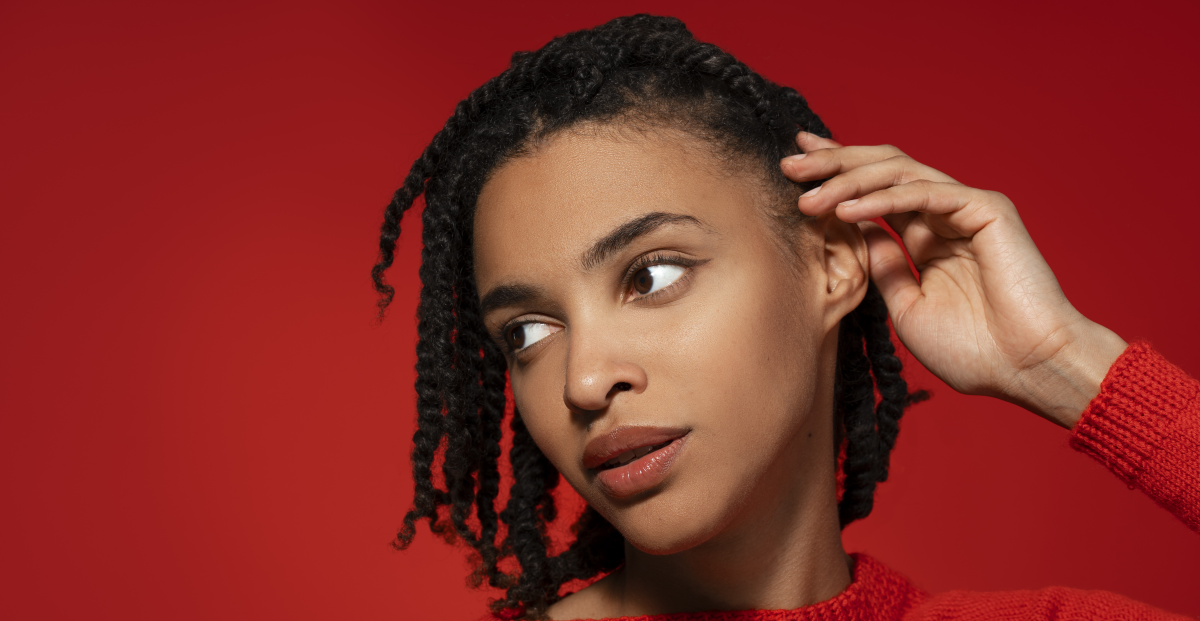2024 Afro American Hairstyles – What You Need To Know
2024 Afro American Hairstyles – Did you know that a woman’s hairstyle is more than just a fashion statement?
Indeed, the cultural significance of hairstyles in society can symbolize a myriad of things, from beauty standards to political affiliations. It’s fascinating to see how a woman’s hairstyle can dramatically affect her mood, job performance, and more. For many Black American women, their hairstyle goes beyond aesthetics, serving as a powerful expression of political identity. Consider that the Black hair care industry is worth millions and is on an upward trajectory.
Allow me to guide you through the essential aspects of African American hairstyles, shedding light on their profound significance.
1. The difference between Afro hair and other types of hair.
While women from other races have wavy, straight or curly hair strands, most Black women have their hair having various degrees of tightly curled hair strands. Some Black women’s hair grows into coils, others in spirals, zig-zags, curves, or loops. This is the main reason most Afro hair grows upward rather than downward, extending and defying gravity to make amazing shapes such as puffs and afros.
2. Black hair grows just like other hairs from other races.
It is quite hilarious that some people think the myth that black hair can’t grow naturally is true. All healthy human hair will grow to about half an inch every month, although such growth is subject to your genetics, nutrition, and general body health. Having long hair largely depends on your hair retention after the long hair breakage, particularly that most Black people’s hair is curly, which can be relatively weaker than long, straight hair.
Every bend in a strand marks a weak point in a hair shaft. This makes Black women’s hair easy to break compared to that of other races. More TLC is needed to fix breakages, rather than saying Afro hair doesn’t grow long.

afro hairdresser
3. Having natural hair is an amazing deal for all Black women.
Did you know that a significant challenge for African American hairstyles is the pressure on Black women to conform to European beauty standards?
This often sidelining their unique and stunning natural hairstyles. For example, many Black women have felt compelled to use hot combs or chemicals to straighten their hair, aligning with a skewed, imposed standard of ‘acceptability’ rooted in prejudiced views. To secure professional opportunities, a Black woman often adopted a hairstyle closely mirroring European looks, implying that her natural hair was less beautiful or professional.
Afro hair should be a source of pride and cultural identity.
Never use hot combs on Black people’s hair.
Typically, using a hot comb on your hair represents a hidden punishment subjected to Black women for having curled, coiled, spiral, or zig zags hairstyles, unlike straight hair. Remember, a hot comb is made of metal and an insulated handle. The metal held over a stove or fire, and once red hot, you press in on your hair to remove the curls through combing them up.
There is not enough reason to justify the need to use a hot comb on someone’s hair to make it ‘straight’, when it is supposed to be curled in its natural beauty.
There is no reason to justify washing black hair daily.
Are you aware that natural oil is more important to keep black hair healthy and shiny?
Yes, either you have a straight or wavy hairstyle. Natural oil travels to every hair shaft easily than water, hence perfectly nourishing your hair. However, if your hair is somewhat kinky or very curly, ensure to wash your hair to avoid using a lot of oil, since it is difficult for the oil to travel through such hair loops smoothly.
Natural oil will help you maintain your hair by avoiding breakage that would otherwise make it dry and unhealthy.
Change your hairstyles as much as you can.
One of the main benefits of having black hair is that you have plenty of options. Yes, you can keep it natural according to your taste. Grown or bought, fluffy or straightened, among other options, and it still looks beautiful.
Why not feel proud about the many great things about the Afro-American Hairstyles? Don’t be alarmed!

Afro Hairstylist Australia
2024 Afro American Hairstyles
Top 10 Afro-American Hairstyles: A Guide to Empowering Styles
Embrace the beauty and versatility of Afro American hairstyles. Each style tells a story, celebrates heritage, and embodies strength. Discover the top ten hairstyles that have captivated hearts and turned heads.
1. The Classic Afro
The Classic Afro stands proud, a symbol of natural beauty and black pride. It’s voluminous, rounded, and utterly iconic.
2. Cornrows
Cornrows offer a sleek, close-to-the-scalp braid. They’re a testament to craftsmanship and tradition, perfect for both casual and formal looks.
3. Bantu Knots
Bantu Knots, small coiled buns dotting the head, are not just a hairstyle but a cultural milestone, radiating boldness and elegance.
4. Twists
Twists are versatile and low-maintenance, offering a protective style that ranges from thin to chunky, suitable for all occasions.
5. Box Braids
Box Braids stand out for their individuality and ease, a go-to for those who cherish versatility and a timeless appeal.
6. Faux Locs
Faux Locs mimic traditional dreadlocks without the long-term commitment, offering an edgy, stylish, and protective styling option.
7. TWA (Teeny Weeny Afro)
The TWA, or Teeny Weeny Afro, celebrates simplicity and low maintenance, perfect for embracing natural texture with minimal effort.
8. High Top Fade
The High Top Fade, with its striking height and precise fade, captures the essence of 90s hip-hop culture, exuding coolness and confidence.
9. Senegalese Twists
Senegalese Twists, known for their smooth texture and glossy finish, blend sophistication with cultural heritage, suitable for any setting.
10. Afro Puffs
Afro Puffs bring a playful and youthful vibe, a simple yet bold statement that radiates confidence and freedom.
Each of these hairstyles is a testament to the rich culture and unstoppable spirit of the Afro-American community. Remember to always Choose Fitness in your life! Whether you’re seeking to make a bold statement, honor your heritage, or simply embrace your natural beauty, there’s a style here that speaks to your soul.
Embrace your identity and let your hair tell your story at Afro Hairstyles at Nicole Hudson Hair Salon.
1. What are some popular Afro American hairstyles for 2024?
Popular styles include box braids, Bantu knots, twist outs, cornrows, and Afro puffs. Protective styles like faux locs and braided ponytails are also trending.
2. How can I protect my natural hair when styling?
Use protective styles like braids, twists, or wigs to minimize daily styling stress. Moisturize regularly, avoid excessive heat, and wrap hair with a silk or satin scarf at night to prevent breakage.
3. What are protective styles, and why are they important?
Protective styles minimize hair manipulation, protecting ends and reducing breakage. These styles, like braids or twists, help maintain healthy hair while allowing growth.
4. How often should I moisturize my Afro-textured hair?
Moisturize Afro-textured hair daily or every other day, depending on its dryness. Using water-based leave-in conditioners and oils helps retain moisture and prevent breakage.
5. What’s the best way to keep Afro American hairstyles frizz-free?
Use anti-frizz products and regularly deep-condition to maintain moisture. Sealing with oils and using satin bonnets at night help reduce frizz caused by dryness and friction.
6. How do I prevent breakage when styling natural hair?
Avoid tight hairstyles that cause tension, like high ponytails or tight braids. Keep hair hydrated, detangle gently with a wide-tooth comb, and avoid excessive heat to reduce breakage.
7. What are good styling tips for maintaining curls in Afro American hair?
Use curl creams or gels specifically formulated for Afro hair to define curls. Apply products when hair is damp and use a diffuser on low heat for extra curl definition without frizz.
8. How can I keep my scalp healthy with Afro American hairstyles?
Regularly cleanse your scalp with a gentle shampoo, even in protective styles, to prevent buildup. Use scalp oils with tea tree or peppermint for a refreshing cleanse.
9. Are there specific products that work best for Afro American hair?
Yes, products with natural oils like jojoba, argan, and shea butter work well for hydration. Look for sulfate-free shampoos and creamy leave-in conditioners designed for Afro-textured hair.
10. How often should I trim my Afro-textured hair?
Trim every 8-12 weeks to remove split ends and keep hair healthy. Regular trims help prevent breakage and allow for healthy growth.



